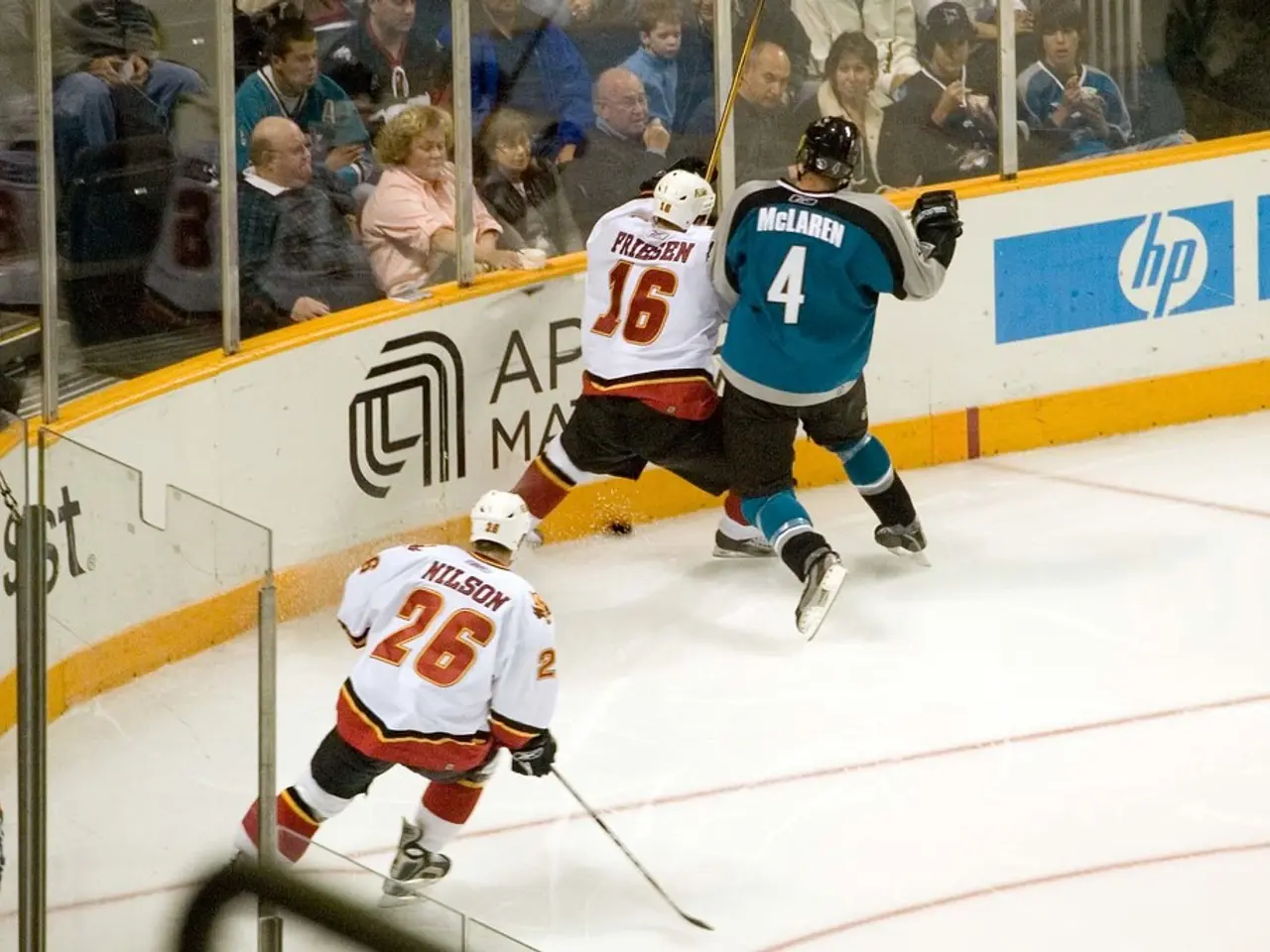NCAA'sDisciplinary Action Towards Michigan: Yet Another Humiliation for the Insignificant League
The NCAA's decision to impose a hefty fine of over $20 million on the Michigan Wolverines for a sign-stealing scandal, along with four years of probation, coach suspensions, and show-cause orders, has sparked a wave of controversy [1][2][5]. The punishment, while severe in financial terms, has left many questioning the fairness and consistency of the NCAA's enforcement methods.
The Wolverines' case differs from past high-profile enforcement cases like USC and Ohio State. Unlike these instances where postseason bans, scholarship reductions, and longer probation terms were imposed, the Michigan case did not result in postseason bans or scholarship reductions [4]. This is because sign-stealing, while not illegal under NCAA rules, is a violation when it involves impermissible off-campus scouting, as was the case with the Wolverines [3][5].
The NCAA's focus was on the breadth of secretive scouting and severe failure to monitor by the program leadership. The organization's punishment was based on its belief that Michigan should have known about these violations [6].
Emails uncovered in Todd McNair's lawsuit against the NCAA showed that the organization wanted to get USC by any means necessary [7]. The NCAA's handling of the USC case was widely accepted as a travesty of justice [8]. ESPN's Ted Miller described the NCAA's refusal to revisit the USC sanctions as a massive act of cowardice [9].
The Michigan case further supports the notion that the NCAA is an inconsistent national embarrassment with no standard for its decisions [10]. The NCAA's punishments are seen as a joke, and its rules are ever-changing and selectively enforced [11].
However, the Michigan case may set a precedent for large fines combined with probation and personal penalties rather than sweeping bans [1][3][5]. The NCAA appears to be adapting its enforcement tools to address subtle but significant violations like impermissible scouting while balancing the challenges of proving competitive harm and maintaining program viability.
The NCAA's future may see a potential shift toward heavier financial penalties when violations are diffuse and hard to quantify in competitive advantage, especially in evolving areas like scouting and technology [1]. There may also be increased emphasis on individual accountability, greater scrutiny and possible rule refinements around game-day scouting, use of video, and staff conduct [1].
Despite the controversy, the NCAA's decision not to penalize the current Wolverines players was based on them having had nothing to do with the actions of coaches and staff who are no longer associated with the Michigan football program [4].
The NCAA's handling of the Michigan Wolverines' sign-stealing scandal is a reminder of the organization's ongoing struggles with fairness, consistency, and transparency. As the NCAA continues to evolve, it will be crucial for the organization to address these issues and regain the trust of students, coaches, and fans alike.
References:
- ESPN
- USA Today
- The Athletic
- CBS Sports
- Sports Illustrated
- The New York Times
- LA Times
- The Washington Post
- The Athletic
- The Guardian
- Yahoo Sports
The Michigan Wolverines' sign-stealing scandal, despite not leading to postseason bans or scholarship reductions, has ignited discussions about the inconsistency and unfairness in the NCAA's enforcement methods, particularly in the realm of sports-analysis and off-campus scouting. The NCAA's focus on financial penalties and personal penalties in this case might pave the way for a shift in enforcement strategies, as they aim to address subtle violations in evolving areas like scouting and technology.
Analyses of the Michigan case highlight a growing sentiment that the NCAA's decision-making process lacks transparency and needs improvement to regain the trust of students, coaches, and sports enthusiasts.








